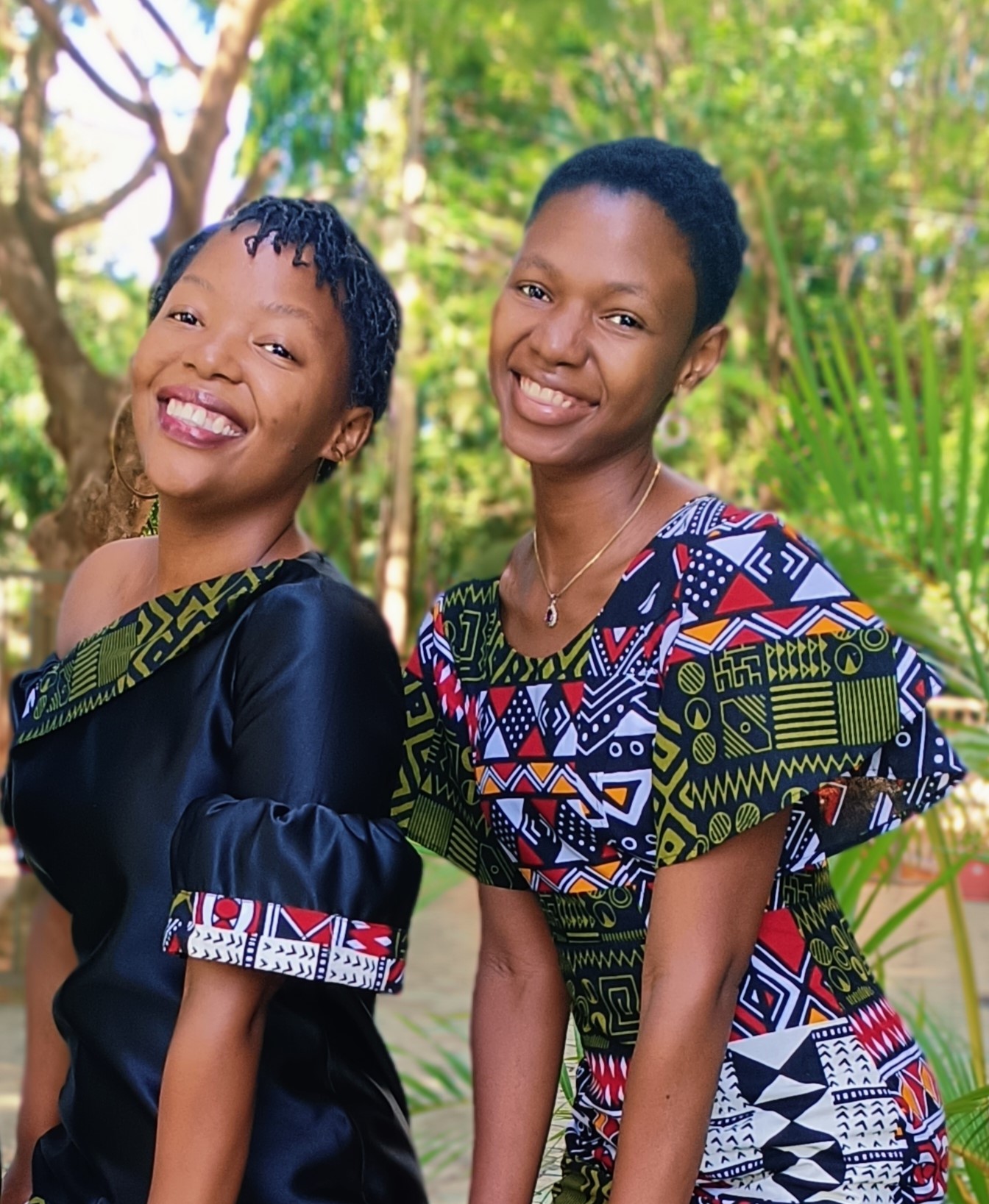Communications | GLAMI Staff | 3rd December 2024
At GLAMI, we conduct weekly peer-to-peer training sessions to encourage learning and growth among our team of over 70 dedicated staff members. One of our proudest accomplishments is fostering a culture of teamwork, where staff members collaborate to overcome challenges, celebrate successes, and, most importantly, ensure that the girls in our programs thrive and achieve their goals.
Since 2010, GLAMI has proudly supported over 13,000 scholars who are now alumni—a remarkable milestone that would not have been possible without the contributions of every team member, past and present. At GLAMI, our commitment to mentorship extends beyond our programs for girls. We also focus on empowering our staff by providing opportunities for personal and professional development, ensuring that team members can achieve their own goals – advancing their careers while achieving our collective mission. Our approach to training is rooted in the belief that growth is essential for success. We believe that each individual has unique potential, and by sharing skills and knowledge through peer-to-peer training, we build a team that is skilled in diverse areas. To foster this continuous growth, we offer both internal and external training opportunities. For internal training, we use a peer-to-peer approach where team members take turns to lead sessions on specific topics, enhancing collaboration, building trust, and providing a platform for developing public speaking and presentation skills. For external training, we bring in professionals to share new perspectives and specialized expertise.
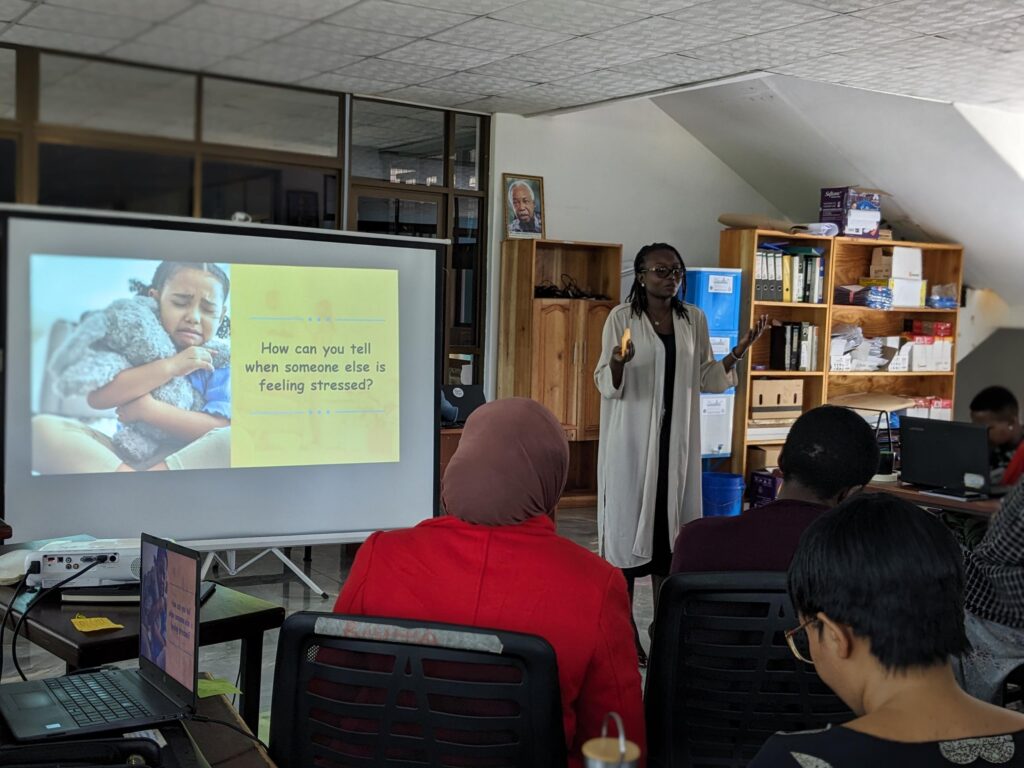
We conduct peer-to-peer training because it focuses on learning from colleagues, creating a dynamic and supportive environment. By having team members take the lead in facilitating training sessions, we ensure that everyone contributes, learns, and grows together. This approach enhances teamwork and strengthens the overall learning experience, allowing us to collectively achieve greater impact. Our peer-to-peer training begins with each staff member identifying skills they want to develop at the start of the year, outlined in their Personal Development Plan (PDP). The Human Resource Manager and Peer Training Captains then compile these areas for development and identify team members who have expertise in those areas. Each staff member is assigned a topic related to these skills, prepares a presentation, and leads a session for their peers.
Our peer training regional captains create a quarterly timetable for their teams, to ensure that the assigned person (facilitator) has enough time to prepare by reading relevant materials and exploring various resources. Using their creativity, the facilitator develops a two-hour presentation and leads a session on the topic. These sessions are conducted weekly, with new topics introduced each week. Some topics may require multiple sessions to cover fully, given the two-hour limit per week. This process promotes knowledge sharing and allows facilitators, who are our staff, to strengthen their presentation and public speaking skills.
Nadya Mpangala, one of our facilitators and GLAMI staff, who recently led a session on presentation and active listening skills said “…It was a wonderful experience to see the team’s trust in me to facilitate. I enjoyed preparing, studying resources on active listening and presentation skills, and creating engaging slides that the team appreciated… Facilitating the session helped me improve my presentation skills, and I received constructive feedback that has helped me grow even more. I look forward to more opportunities to facilitate in the future.“
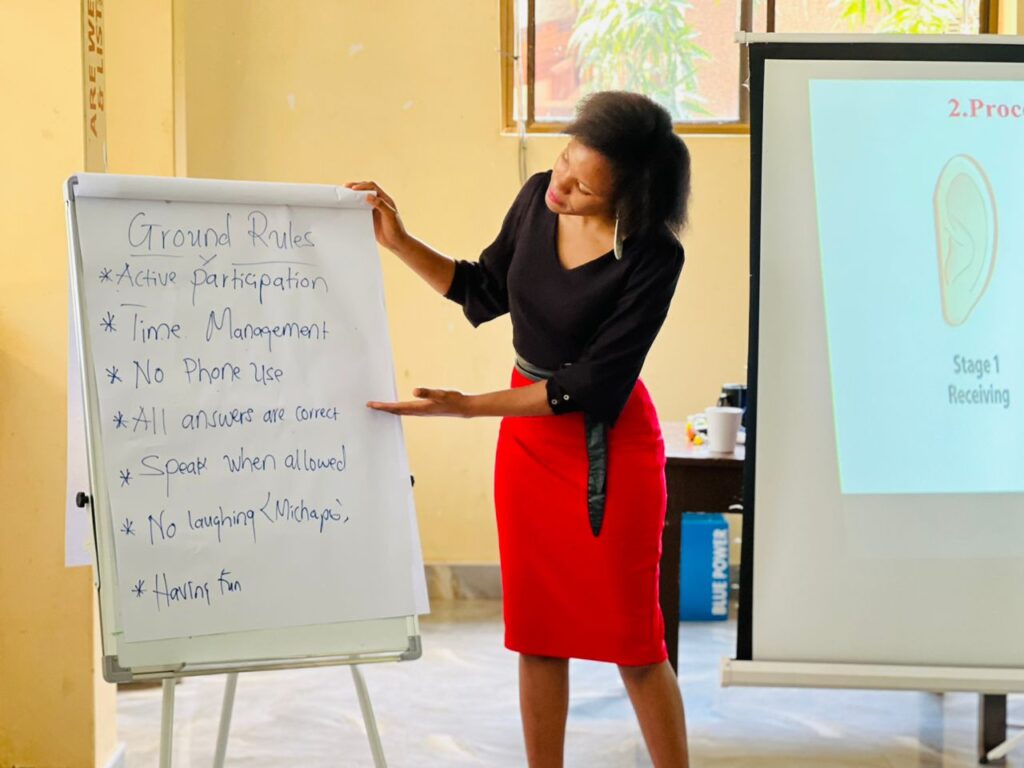
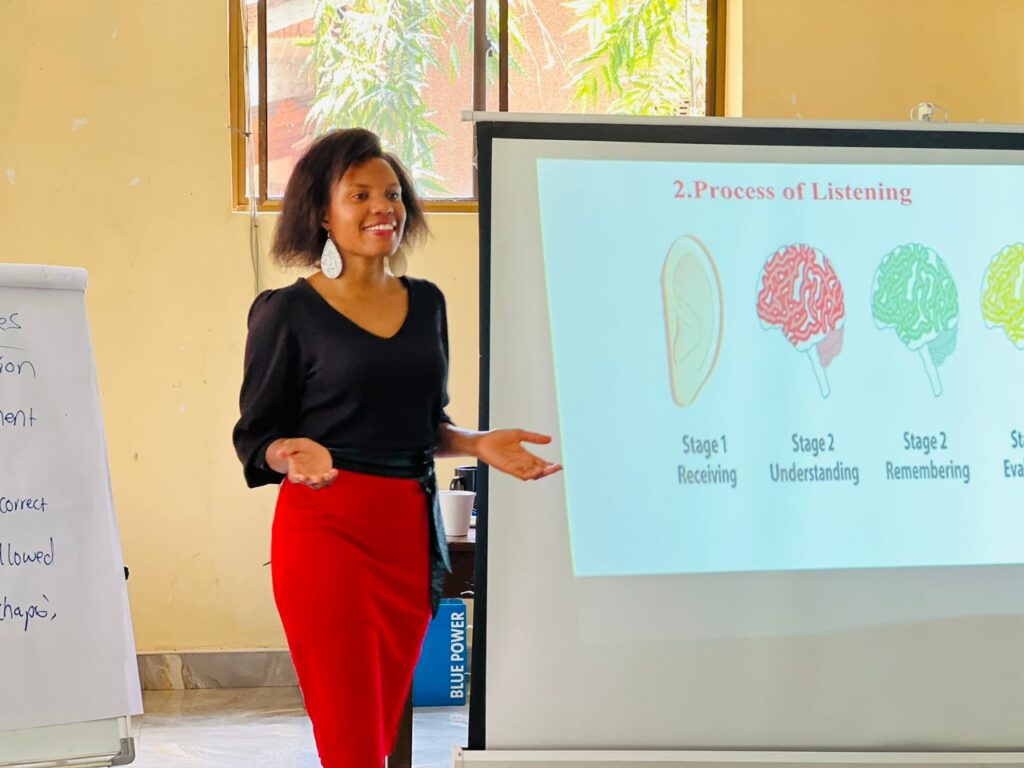
Nadya Mpangala, during peer to peer training session on Active Listening and Presentation skills
During peer training, our goal extends beyond simply listening and obtaining knowledge; we aim for the team to actively learn and acquire the skills that the training is designed to do, which is growth. Throughout the session, our team observes how the facilitator conducts the training, paying attention to their public speaking and facilitation techniques too. At the end of the two-hour session, the entire team that participated in the training provides constructive feedback, highlighting both strengths and areas for improvement. This feedback is essential in helping the facilitator refine their skills, ensuring even greater success in future sessions.
Our team shared the following feedback concerning this year’s peer-to-peer training: “I’ve gained valuable insights and had a lot of fun during these training sessions. Each facilitator made a unique effort to bring creativity and innovation to their approach, showcasing their depth of knowledge and awareness. Personally, I’ve always found these training sessions to be engaging and enriching.” – Innocencia Mataba, GLAMI Mentor Coordinator.
“This year’s peer training has been incredibly valuable in expanding my knowledge through collaboration with others, improving my facilitation skills, and effectively leveraging technology for career growth.” – Verynice, GLAMI Public Relations Officer
“The training provided me with the essential skills needed for my office work, but it also broadened my knowledge in areas beyond the workplace, such as financial management.” – Jackline Kishenyi, GLAMI Program Mentor
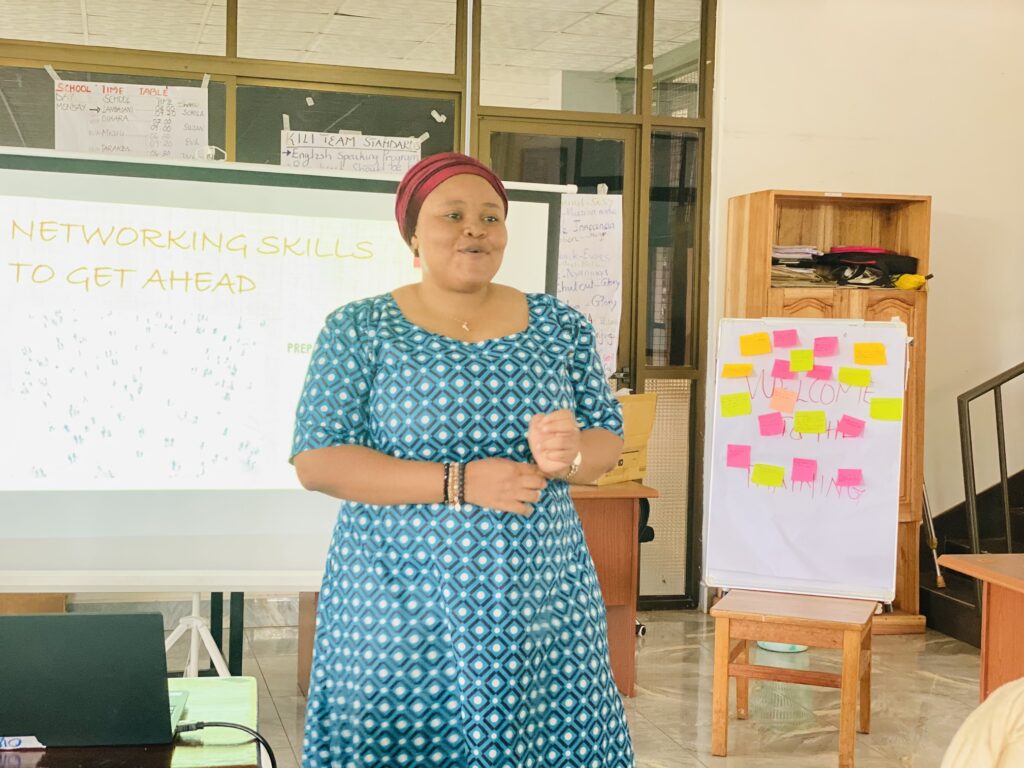
At GLAMI, peer training offers many benefits, including enhancing skills such as public speaking, research, teaching, mentorship, coaching, facilitation, and communication. Staff also gain valuable knowledge on a variety of topics discussed, all of which support their career growth. Staff members who lead training sessions often become better at these skills and mentoring the program scholars. Peer training also speeds up onboarding for new employees and helps existing staff upgrade their skills quickly. For example, when some team members faced challenges using Google Suite, we identified staff members with IT expertise to lead training sessions. Innocencia Mataba trained the Kilimanjaro team, Deborah Rodgers trained the Arusha team, and Einoth Justine provided the same training to the Morogoro team. This hands-on, peer-led approach not only helped everyone become more proficient with Google Suite but also saved costs compared to hiring external trainers for this topic.
We consider peer-to-peer training successful when our team can effectively apply what they’ve learned, resulting in visible improvements and positive changes in the organization. Our goal is for each participant to actively engage in the learning process, not only to absorb new skills but also to observe and provide feedback on facilitation techniques so as to help each other grow in different skills.
